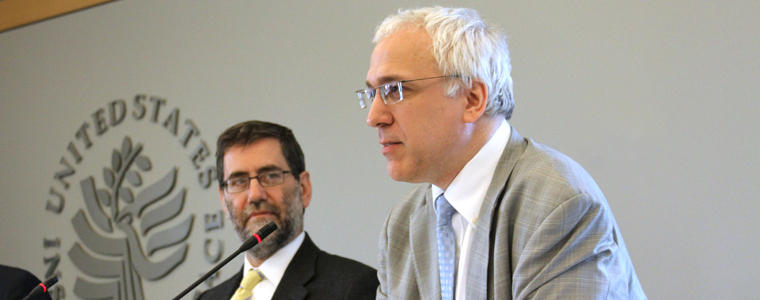Transatlantic Atrocity Prevention:
The U.S. and EU Approach to Implementing R2P
The prevention of mass atrocities presents an increasingly prominent foreign policy objective on both sides of the Atlantic.
Read the event coverage, Syria Leaves U.S., EU Uncertain How to Meet Pledge to Prevent Atrocities

The advocacy and academic communities have successfully strengthened the case for preventive action as a cost-effective alternative to crisis management or reactive measures. While significant progress has been made in recent years, relevant U.S. and EU policymakers still face significant political and operational challenges in implementing their responsibility to protect civilians from mass atrocity crimes. How do we translate the theory of atrocity prevention into practice? How can regional organizations best complement international and local initiatives? How do we effectively coordinate transatlantic efforts to prevent the type of mass killing we currently experience in Syria and throughout Central Africa?
On May 15, two esteemed academics discussed the role of the U.S. Government and the European Union in preventing mass atrocities and implementing the responsibility to protect principle.
This event featured the following speakers:
- Dr. Andrew Bartoli, Discussant
Dean of the School for Conflict Analysis and Resolution, George Mason University - Dr. Jan Wouters, Discussant
Director of the Leuven Center for Global Governance Studies, KU Leuven - Jonas Claes, Moderator
Program Officer, Center for Conflict Management, U.S. Institute of Peace



